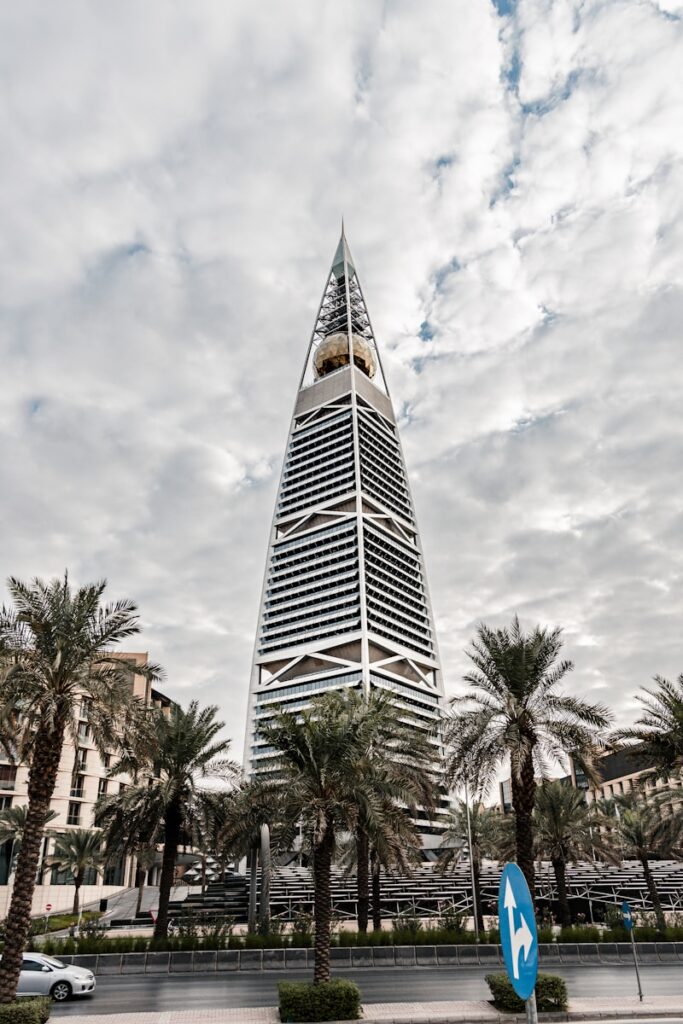Navigating Saudi Business Culture: A Quick Guide for Foreign Entrepreneurs

Saudi business culture places high importance on personal relationships, respect, and clear hierarchies, so building trust is key. Meetings often begin with informal conversation, and patience is essential in negotiation processes. Understanding local customs and practicing cultural sensitivity can open doors and strengthen your business ties.
The Cultural Core of Saudi Business Etiquette
Hierarchy, Family Ties, and Mutual Respect
Saudi Arabian society is hierarchical, and this is mirrored precisely within business structures. Seniority, both in age and rank, commands respect. Business decisions are typically centralized and made at the top level of the organization.
Family is the cornerstone of Saudi society. Loyalty to family and tribe is a virtue, often expressed in business through the preference to hire, collaborate with, or support those within one’s trusted network. Nepotism, which is often viewed negatively in the West, is seen in Saudi Arabia as a sign of reliability, familiarity, and mutual obligation.
Mutual respect is the bedrock of interaction. This is demonstrated not only through language but also through gestures, tone of voice, and the manner of approach.
Building Trust Through Personal Relationships
Wasta – The Social Currency of Saudi Business
In Saudi Arabia, success in business is closely tied to the ability to build strong personal relationships, a concept that goes beyond mere networking. Central to this relationship-based business model is wasta, a term that translates loosely as “connections” or “influence”. But it means far more than a contact list – it is a cultural institution rooted in tribal traditions and the high value placed on loyalty and trust.
Wasta functions as a form of social capital. Whether it’s securing a meeting, expediting paperwork, or gaining access to key decision-makers, who you know is often more important than what you know. Foreign entrepreneurs who underestimate the value of wasta may find themselves locked out of opportunities, no matter how compelling their proposal.
Transactional vs. Relational Business Approaches
In contrast to Western business models, which prioritize efficiency, speed, and enforceable contracts, Saudi business culture emphasizes relationship depth, trust, and patience. A Western entrepreneur might approach a meeting with a clear agenda and a desire to finalize terms, while a Saudi counterpart may view that same meeting as the beginning of a relationship – sone that must be nurtured before any deal can be struck.
Contracts in Saudi Arabia, while legally binding, are often viewed as a symbolic representation of trust, not a substitute for it. The real foundation of any deal is personal credibility. This means that a great proposal or competitive pricing alone won’t suffice. It’s the trust between the people involved that will determine whether a deal proceeds.
Hospitality, Shared Meals, and the Language of Small Talk
Hospitality is a sacred value in Saudi society and plays a central role in business. Meetings frequently start with Arabic coffee (qahwa) and dates, not documents and presentations. Skipping over this initial hospitality is perceived as rude and rushed.
Small talk is not small – it’s significant. Discussions about family, health, sports, or travel are not distractions from business – they are business. They signal openness, warmth, and willingness to connect beyond the professional transaction. Foreign entrepreneurs are encouraged to reciprocate by sharing stories and asking non-invasive personal questions, particularly about the person’s hometown, children, or travel.
Food is another powerful tool in relationship-building. Accepting an invitation to lunch or dinner is not just a meal – it’s an act of inclusion and a step toward trust. Even if you are not hungry, accept a small bite or a drink to show appreciation. Bringing food to share, attending business Iftars during Ramadan, or offering a small token of thanks after a meeting can leave a lasting impression.
In all these moments, the unspoken message is: “I respect you enough to spend time with you.” And in Saudi Arabia, that kind of respect forms the foundation of every successful business relationship.

Communication Styles and Decision-Making Protocols
Indirect and Diplomatic Communication Norms
In Saudi Arabia, communication is far more than a mere exchange of information – it is an art form shaped by the values of dignity, politeness, and cultural sensitivity. The prevailing communication style is indirect, diplomatic, and often metaphorical. This approach serves multiple purposes: it maintains harmony, allows all parties to “save face,” and avoids direct confrontation or public embarrassment.
Unlike Western business environments, where being direct and to-the-point is often valued as a sign of professionalism and efficiency, Saudi business communication favors discretion and subtlety. Giving a blunt “no,” or criticizing someone openly – even if constructive – is considered deeply disrespectful. Therefore, you will rarely hear an outright rejection in Saudi business discussions. Instead, you might encounter polite phrases like:
- “Inshallah” (God willing)
- “Let me think about it”
- “We will consider this”
- “There is no problem”
These expressions often serve as placeholders for a polite refusal or a non-committal stance. They should not be interpreted literally.
Understanding this style requires emotional intelligence, cultural literacy, and attentiveness to non-verbal cues. Foreign entrepreneurs who insist on direct answers or press for commitments too early risk undermining trust and closing off future opportunities.
Reading Between the Lines: Metaphors, Expressions, and Body Language
Due to the indirect nature of communication, non-verbal signals carry significant weight in Saudi business interactions. Experienced professionals learn to “read the room” by observing:
- Facial expressions: A smile may hide disagreement; raised eyebrows can signal discomfort or disagreement.
- Tone of voice: A softer or hesitant tone might suggest reluctance or objection.
- Gestures: A simple shrug or averted gaze could convey rejection or disinterest.
- Shifting topics: If your proposal is suddenly followed by a change in subject or abstract discussion, this may indicate rejection without verbalizing it directly.
Metaphors and storytelling are also commonly used to communicate complex or sensitive issues. For instance, a Saudi businessperson might use an allegorical tale to express discontent without pointing fingers directly.
It’s important for foreign entrepreneurs to listen with cultural context in mind, ask clarifying questions delicately, and avoid pushing for yes-or-no answers unless the relationship is strong enough to accommodate such directness.
Hierarchical Corporate Structures and the Importance of Patience
Saudi business culture is built upon a strong hierarchical framework. Authority and decision-making are centralized, with top executives – often company owners or senior family members – having the final say. Middle managers may participate in meetings, but they are not typically empowered to make binding decisions without consulting their superiors.
In this structure, patience is not only a virtue – it is a requirement. Negotiations take time, and foreign entrepreneurs must allow discussions to follow a natural progression. Attempting to speed up the process, bypass lower-level contacts, or directly seek approval from higher-ups too soon is viewed as inappropriate and culturally insensitive.
It is also crucial to understand that building consensus and securing internal alignment within a Saudi company may take longer than expected. The waiting period is not a sign of disinterest but a part of the decision-making rhythm, influenced by social, cultural, and religious dynamics.
How to Navigate Business Meetings in Saudi Arabia
Scheduling, Punctuality, and the Impact of Prayer Times
Business scheduling in Saudi Arabia requires flexibility, foresight, and respect for religious obligations. While punctuality is appreciated – especially from foreign guests – meetings may not always begin or end on time. Delays are common and often not seen as disrespectful, but rather a reflection of cultural priorities such as hospitality and social interaction.
One of the most critical considerations is the daily prayer schedule, which includes five obligatory prayers:
- Al-Fajr (dawn)
- Al-Zuhr (midday)
- Al-‘Asr (afternoon)
- Al-Maghrib (sunset)
- Al-‘Isha (evening)
Each of these prayer times can impact business hours, particularly during Zuhr and Asr, when office activities are often paused. Additionally, during Ramadan, the holy month of fasting, most business hours are shortened – usually ending by early afternoon – and meetings may be rescheduled after Iftar, the evening meal that breaks the fast.
Tip: Always confirm the timing of meetings, be prepared for possible rescheduling, and never express frustration over delays linked to religious or family priorities.
Greeting Rituals, Titles, and Language Tips
First impressions carry immense weight in Saudi business settings. Greetings are not just a formality – they are a cultural ritual that signifies respect, goodwill, and intent.
A standard greeting begins with “Assalamu Alaikum” (Peace be upon you), to which the response is “Wa Alaikum Assalam” (And peace be upon you, too). Additional greetings include:
- Sabah Al-Khair – Good morning
- Masa’ Al-Khair – Good evening
- Kayf Halak/Halik – How are you? (male/female)
- Alhamdulillah – Praise be to God (response to “How are you?”)
These greetings may be accompanied by a handshake, which is longer and more deliberate than in Western cultures. With close associates or elders, men may exchange kisses on each cheek. However, handshakes between men and women are only appropriate if the woman initiates. When in doubt, placing the hand over the heart with a nod is a respectful gesture.
Using proper titles is vital. Always address someone by their professional or academic honorifics, such as:
- Sheikh – A term of respect, often used for older men or those in leadership
- Doctor – For PhD or medical professionals
- Ustadh – Teacher or learned individual
Avoid addressing individuals by first name alone unless invited to do so.
Understanding Contracts, Negotiation, and Legal Framework
Legal vs. Relational Weight of Contracts
In Saudi Arabia, contracts serve as both legal instruments and social symbols of mutual trust. While written agreements are essential, especially for foreign entities doing business in the Kingdom, the relational context in which a contract is formed often outweighs the contract’s written clauses in practical significance.
This is a stark departure from Western business environments, where the legal text itself is the primary authority. In Saudi Arabia, however, the strength of a contract is often judged by the integrity of the relationship between the parties involved. If trust exists, even unwritten understandings are honored. Conversely, a contract without a strong relationship foundation may face delays or be unenforceable in practice, despite its legality.
The Role of Personal Networks in Negotiation and Approvals
The influence of personal networks – commonly referred to as wasta – extends deeply into negotiations and the bureaucratic approval process. Even with a valid contract or license in hand, many business procedures such as land use, municipal approvals, or commercial registrations may stall without the right interpersonal connections to guide the process.
Having a well-placed local contact can often make the difference between weeks of bureaucratic standstill and a same-day approval. This is not necessarily corruption but rather a cultural expectation that favors familiarity, trust, and social bonding as the basis for action.
Thus, foreign companies are strongly advised to engage with a local sponsor, representative, or legal partner who possesses relevant government and private-sector connections. This not only eases regulatory navigation but also lends credibility and trustworthiness to the foreign party.
The Saudi Legal System: Islamic Law and the Role of SAGIA
Saudi Arabia’s legal environment is shaped by two intertwined systems:
- Sharia (Islamic law) – which governs personal conduct, commercial interactions, banking, and dispute resolution.
- Royal decrees and regulations – codified rules issued by government bodies such as ministries, municipalities, and specialized agencies.
Sharia influences core contractual concepts such as interest (riba), risk-sharing, and ethical business conduct. This is particularly relevant in sectors like Islamic finance, real estate, and joint ventures, where religious compliance is non-negotiable. For this reason, foreign contracts – especially those involving finance or labor – must be reviewed by legal experts with knowledge of both international law and Sharia.
The Saudi Arabian General Investment Authority (SAGIA), now merged into the Ministry of Investment, plays a key role in facilitating foreign entry. It oversees:
- Business licensing
- Sector-specific foreign ownership rules
- Investor incentives
- Economic city approvals (e.g., NEOM)
SAGIA has modernized many of its procedures in line with Vision 2030, introducing online portals, streamlined applications, and clearer investment guidelines. However, compliance still requires careful planning and a nuanced understanding of legal, cultural, and religious norms.

Language and Social Dynamics
Arabic as the Official Language, English as the Business Language
Arabic is the official language of Saudi Arabia and the cultural backbone of the Kingdom. It is the language of the Qur’an, religious services, government communication, and daily life. However, English is widely spoken, particularly in business, academia, and the medical and engineering fields.
For foreign entrepreneurs, learning basic Arabic phrases or greetings can go a long way in establishing rapport and building credibility. Useful phrases include:
- As-salamu alaykum – Peace be upon you
- Kayfa halak? – How are you? (male)
- Shukran – Thank you
- Min fadlik – Please
- La afham – I don’t understand
- Ma ismuka? – What is your name?
Even if your pronunciation isn’t perfect, the effort is usually met with appreciation.
Naming Conventions and the Social Importance of Family Lineage
In Saudi Arabia, names are deeply symbolic and often reveal significant information about a person’s background, heritage, and tribe. A typical full name may include:
- Given name (e.g., Mohammed)
- Patronymic (e.g., ibn Abdullah – “son of Abdullah” or bint Abdullah – “daughter of Abdullah”)
- Grandfather’s name
- Tribal or family name (e.g., Al-Saud, Al-Faisal)
This naming structure not only maintains ancestral history but also signals tribal affiliation and social rank. Recognizing and using full names – especially with appropriate titles like Sheikh, Doctor, or Ustadh – demonstrates your awareness of cultural protocols and respect for the person’s identity.
For business purposes, always use formal titles until invited to use a first name. Avoid shortening names, mispronouncing tribal affiliations, or addressing someone without their proper honorific.
Tips for Long-Term Success in the Saudi Market
| Key Pillar | Core Practice | Business Advantage |
|---|---|---|
| 1. Establishing and Maintaining Meaningful Networks | – Attend industry and government events – Prioritize relationship-building over transactions – Engage in personal conversations with respect – Understand family and tribal affiliations | Builds trust, enhances reputation, and unlocks access to high-level deals that are often closed through relationship-based negotiations. |
| 2. The Importance of Adaptability and Local Partnerships | – Stay agile and ready to pivot – Partner with a trusted local ally – Let your partner guide cultural, legal, and market dynamics | Enhances local credibility, ensures cultural alignment, and simplifies compliance and access to key stakeholders. |
| 3. Balancing Tradition and Innovation | – Align with Vision 2030 priorities – Offer solutions that complement existing systems – Avoid disrupting cultural norms or institutional frameworks | Positions your brand as a respectful innovator, gaining acceptance from both consumers and regulators while driving long-term value. |
Where to Work and Network in Riyadh – R House Coworking Space
A Dynamic, Culturally Sensitive Base for Entrepreneurs in Riyadh
For entrepreneurs, creatives, consultants, and startups entering the Saudi market, finding the right workspace is as crucial as understanding the culture. R House coworking space in Riyadh emerges as a standout solution – more than just a place to work, it is an environment intentionally designed to foster connection, innovation, and cultural alignment.
Located in the heart of Riyadh, R House caters to both international professionals seeking a soft landing and local innovators looking for community and infrastructure. The atmosphere is stylish yet professional, blending contemporary design with functional layouts that reflect Saudi Arabia’s emerging business identity: modern, ambitious, yet deeply respectful of tradition.
From its central courtyard and outdoor terrace to its multi-use event spaces and private meeting rooms, R House reflects the Kingdom’s dual focus on creative expression and business discipline.
Facilities That Go Beyond Desks and Wi-Fi
R House offers a comprehensive suite of facilities that support both day-to-day productivity and high-level collaboration. Whether you’re a solo entrepreneur or managing a project team, you’ll find an ecosystem built to accommodate your workflow:
- Meeting Rooms: Fully equipped with conferencing technology, whiteboards, and high-speed internet, suitable for small briefings or formal boardroom meetings (accommodating 6 to 20 people).
- The Boardroom: Ideal for private, formal discussions, seating up to 8 with all essential tech.
- The White Room: A minimalist, art-inspired studio that can be used for creative sessions, photoshoots, or small screenings – perfect for those in media, design, or branding.
- The Workshop Room: A large private room designed for training sessions, team-building workshops, or group presentations of up to 20 people.
- Project Studios: Bookable enclosed studios with lighting, seating, and equipment for more creative or confidential sessions.
Additional member-focused amenities include:
- Private phone booths for confidential calls
- Printing and IT support
- Art studios and private event venues
- Showers and on-site kitchen with refreshments
- Secure mail handling and business address services
- Member-only directory and R House mobile app
- High-speed Wi-Fi throughout the premises
- Reserved parking and guest entry permissions
This complete infrastructure creates a seamless business experience, allowing members to focus on execution, creativity, and relationship-building.
FAQ – Doing Business in Saudi Arabia
What is wasta and why is it important?
Wasta is an Arabic term that loosely translates to “connections” or “influence”, and it is one of the most important cultural concepts in Saudi business. Rooted in tribal traditions, wasta functions as a social and professional currency based on trust, personal relationships, and mutual obligation. In practice, it can facilitate faster bureaucratic approvals, smoother negotiations, and greater access to decision-makers.
Unlike Western systems, which often emphasize process and documentation, wasta can often override formal procedures – not through corruption, but through the cultural expectation that individuals will help members of their network. For foreign entrepreneurs, understanding wasta is critical. Without trusted local connections, even straightforward business processes can become drawn out. To leverage wasta ethically and effectively, invest time in building genuine, long-term relationships with well-connected Saudi partners.
How should I behave during Ramadan in business settings?
During Ramadan, Muslims fast from sunrise to sunset, abstaining from food, drink, smoking, and physical indulgence. This month is deeply spiritual, and business operations slow significantly to accommodate changes in energy levels and daily routines.
In a business context, working hours are reduced (often 10 AM to 2 PM). Meetings are rare during the afternoon and often rescheduled after Iftar (the meal breaking the fast). Productivity may dip, and many decisions are postponed until after Eid al-Fitr.
As a non-Muslim, you must refrain from eating, drinking, or smoking in public during daylight hours. Avoid scheduling important meetings late in the day. Dress and behave more modestly than usual. Accept invitations to Iftar meals – they are a sign of trust and relationship-building.
What is the dress code for business meetings?
In Saudi Arabia, business attire is expected to be formal, modest, and respectful of Islamic values.
For men: A dark suit and tie is standard. Long-sleeved shirts, polished shoes, and conservative grooming are advised.
For women: A long black abaya is traditionally worn, with a headscarf (hijab) recommended in conservative areas. Clothing underneath should also be modest – no tight-fitting, sleeveless, or low-cut garments.
In international offices, dress codes may be more relaxed, but formality and modesty are always safest for first impressions.
Are contracts legally binding in Saudi Arabia?
Yes, contracts are legally binding, and recent reforms have increased transparency and legal clarity. However, cultural nuances mean that contracts are often seen as reflections of mutual trust rather than solely legal mechanisms.
Saudi law blends Sharia (Islamic jurisprudence) and royal decrees. Foreign businesses should work with local legal experts, ensure compliance with Islamic principles, and understand that negotiation may continue post-signature as part of maintaining the relationship.
Is English sufficient for doing business in Saudi Arabia?
While Arabic is the official language, English is widely used in the business community. Most professionals in major cities are fluent, and contracts and documents are often bilingual.
However, including Arabic translations and learning basic greetings is highly recommended. It reflects cultural respect and improves communication with non-English-speaking stakeholders and regulators.
Do I need a local sponsor or partner to start a business in Saudi Arabia?
Foreigners can own 100% of businesses in many sectors, regulated by the Ministry of Investment. However, in some industries or for government contracts, having a local partner is still strategically beneficial.
Local partners can assist with bureaucratic processes, introductions, and adapting your offer to local market needs. While not always legally required, they are often essential for practical success.
Are there specific times of the week when business is conducted?
The Saudi business week runs from Sunday to Thursday. Friday and Saturday are the weekend, with Friday being the Islamic holy day. Most businesses are closed on Fridays.
Standard hours are 8 AM to 5 PM, but during Ramadan they shorten to 10 AM to 2 PM. Avoid scheduling meetings late on Thursdays, during Friday prayers, or near major holidays like Eid.
Is it acceptable to negotiate pricing or contract terms in Saudi Arabia?
Yes. Negotiation is a fundamental part of Saudi business culture. Pricing, terms, and timelines are expected to be discussed thoroughly.
However, the process is slower and more relational than in many Western markets. Avoid aggressive tactics, be patient, and focus on building rapport and mutual respect during negotiations.







